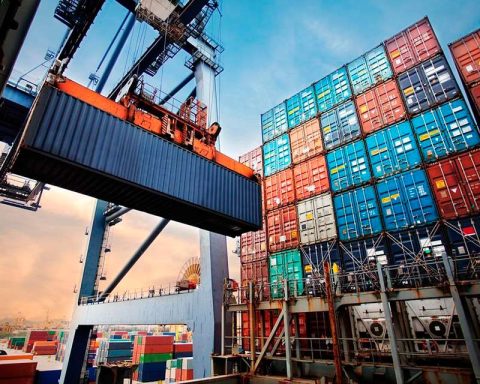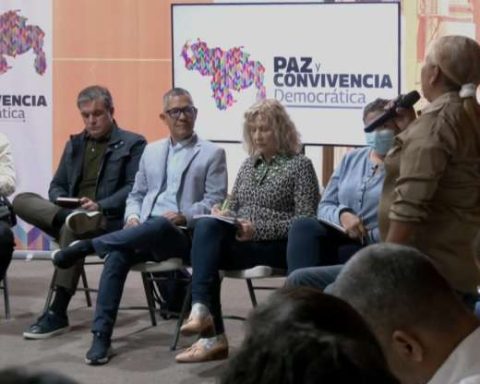UN Women Executive Director Sima Bahous stressed that the world is currently facing “a new type of poverty that devastatingly excludes women and girls: digital poverty.” The UN Secretary General, Antonio Guterres, recalled that girls and women represent only a third of science, technology, engineering and mathematics students, and that in the field of artificial intelligence only one in five workers is a woman. . Both intervened in the session of the Commission on the Legal and Social Condition of Women
The Secretary General of the UN affirmed this Monday, March 6, that the beginning of the 67th session of the Commission on the Legal and Social Status of Women It is especially important at a time when women’s rights are being abused, threatened, and gains made over decades are “fading before our eyes.”
Guterres highlighted that the theme chosen this year by the Commission, the elimination of gender differences in technology and innovation, “It couldn’t be more timely” as “while technology is advancing at full speed, women and girls are left behind.”
“In Afghanistan, women and girls have been excluded from public life. In many places, women’s sexual and reproductive rights are receding. In some countries, girls who go to school are at risk of being kidnapped and assaulted. In others, the police take advantage of vulnerable women whom they have sworn to protect,” he highlighted as an example of this situation.
António Guterres affirmed that “gender equality is moving further and further away” and, citing data from UN Women, he placed it 300 years away if it continued “on the same path”.
*Read also: EU and UN repudiate closure of universities to women from Afghanistan
After highlighting the increase in maternal mortality or the impact caused by covid-19 or international conflicts on women and girls, she pointed out that “the patriarchy is fighting back”, but stressed that the United Nations “also” is doing so through the work of their teams and humanitarian agencies on the ground.
“Globally, girls and women make up only a third of science, technology, engineering and math students. In the tech sector, men outnumber women by a ratio of two to one. In Artificial Intelligence, only one in five workers is a woman », she evidenced.
The inequality was extended by Guterres to the Nobel Prize in scientific categories, where a team of women won the prize for the first time three years ago, while men shared the award 172 times.
“Big data is the ‘new gold’ and the basis of today’s political and business decisions. But they often ignore gender differences or turn a blind eye to women altogether, leading to products and services that feed gender inequality from the start,” the UN chief warned.
He recalled that “gender inequality is a matter of power” and called for equipping this power in three ways:
|
The digital divide is the new face of gender inequality
The President of the General Assembly, Csaba Kőrösi, highlighted that online learning in some regions “is reducing gender educational gaps, preparing women for digital jobs and connecting them with job opportunities.”
“By addressing the stereotypes that prevent girls from pursuing so-called STEM (Science, Technology, Engineering, Mathematics) careers, we can work to change mindsets and increase diversity of thought in our workplaces,” she said.
Quoting the writer Nancy Duarte, he indicated that “the future is not a place to which we are heading. It is a site that you can create.
The executive director of UN Women stressed that the world is currently facing “a new type of poverty that devastatingly excludes women and girls: digital poverty.”
Sima Bahous warned that “the digital divide has become the new face of gender inequality, which is exacerbated by the setback against women and girls that we see in today’s world.”
Precisely for this reason, she highlighted that the work of the 67th Commission on the Legal and Social Condition of Women “could not be more timely or more critical”, in a meeting that will serve to develop “norms and standards for an urgent issue of great importance that offers both opportunity and challenge.
Bahous warned that the digital revolution offers “unprecedented opportunities for women and girls”, but that it also creates “new and profound challenges” and warned of the increase in gender inequality.
“We will not achieve gender equality without closing the digital divide,” he added.
*Read also: Menstrual poverty increases: 40% of women do not have access to hygiene products
«Women are 18% less likely than men to own a smartphone and much less to access or use the Internet. Just last year, 259 million more men than women connected to the Internet. Only 28% of engineering graduates and 22% of AI workers globally are women,” she explained by way of example.
Finally, she stressed that the digital divide can limit women’s access to vital information, money transfer services via mobile phones or online public services.
This mainly influences a woman completes her education, has her own bank account, makes informed decisions about her body, feeds her family, or gets productive employment. In the background. The digital divide is pervasive because technology is omnipresent in all aspects of our modern lives,” he stressed.
Post Views: 132















